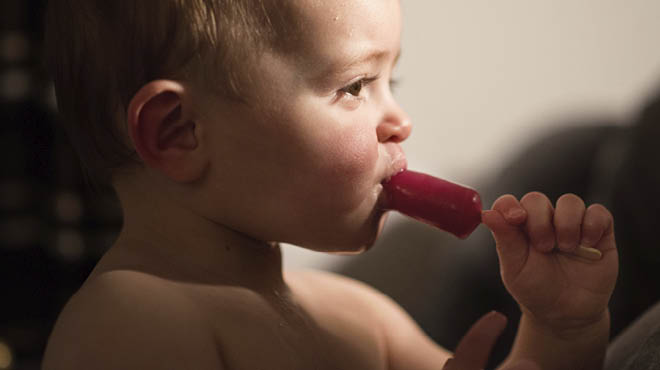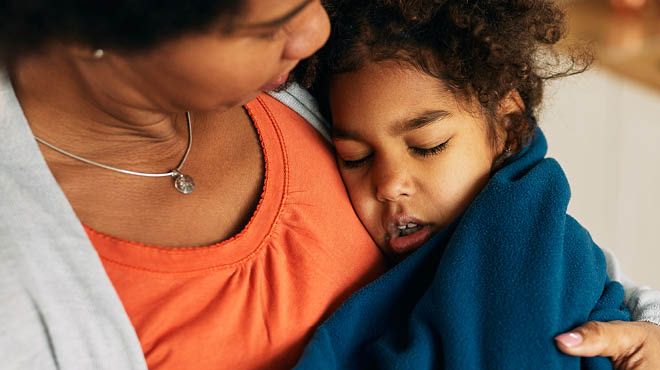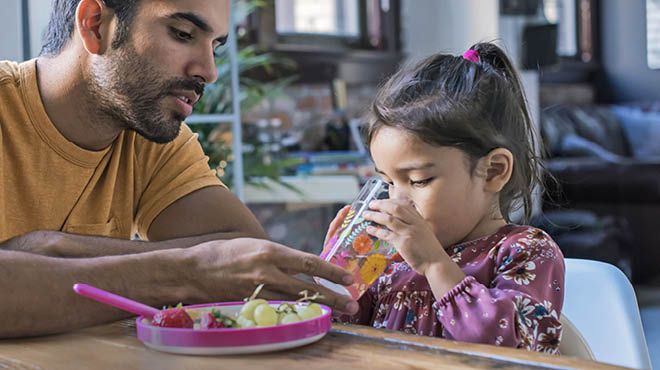Recent Posts
The 5 Ws of healthy hands can help you avoid germs, illnesses

Preventing illness during the cold and flu season starts with knowing how to wash your hands properly, when to wash your hands, what products to use and why you should pay special attention to skin cleanliness.
According to the Centers for Disease Control and Prevention, frequent hand-washing is one of the best ways to prevent the spread of illness. Teaching children hygiene habits is essential, as they're more likely to be exposed to respiratory illnesses at school or child care.
Keep in mind these 5 Ws when teaching your children about proper hand hygiene:
1. Who?
Everyone — create routines around hand-washing beginning at an early age.
2. What?
Using running water and plain soap, followed by moisturizer, is best where running water is available. Plain soap and running water — used with good hand-washing technique — are just as effective against common childhood respiratory and stomach, or gastrointestinal, viruses and bacteria as antibacterial soap.
Although it may be convenient to grab baby wipes to use on your children's hands, keep in mind that while they may make your hands look clean, they're not designed to remove germs.
3. Where and how?
- If running water and soap are available, wet hands thoroughly.
- Apply soap and lather, paying particular attention to nails and between fingers.
- Rub for 10 to 20 seconds — long enough to sing the "Happy Birthday" song twice.
- Rinse.
- Dry with a clean towel.
- Use the towel to turn off the faucet.
4. When?
- If hands are visibly dirty
- Before eating, and before and after food preparation
- After using the bathroom
- After shaking hands with someone
- On arrival home from school, child care and play dates
- After touching a dirty surface or item
- After coughing, sneezing or wiping the nose
5. Why?
Skin usually is a great barrier to infection. You can help maintain that barrier by regularly using moisturizers during cold, dry winter months to prevent cracked or chapped skin. With regular hand-washing, you can remove infectious organisms from your hands before you transfer them to your eyes, nose or mouth. This often is how common cold and influenza viruses are spread. Research indicates that regular hand-washing in classrooms decreases school absences due to illness.
In some situations, hand sanitizer is a good alternative. Use a dime-sized amount and rub it thoroughly over the surfaces of your hands until the hands are dry. Hand sanitizers usually contain 60 to 90% alcohol, which kills many bacteria and viruses that cause infection. Hand sanitizer doesn't work without good contact with the skin, so opt for soap and water when your hands are extremely dirty.
Hand sanitizer safety
Because of its high alcohol content, hand sanitizer has several safety concerns. Children shouldn't use it unsupervised. Some experts recommend limiting how often young children use hand sanitizer. Don't use it on children under 2.
Alcohol is flammable, so store sanitizer away from flames and heat sources. There are strict guidelines for placement in schools and child care centers to reduce the risk of fire.
Due to the high alcohol content in hand sanitizer, alcohol poisoning and intoxication are possible if someone drinks a large amount, or uses it on damaged skin or on babies who don't have a fully developed skin barrier.
It's important to supervise the use of hand sanitizer to limit it to a dime-size amount and ensure safe storage. If accidental ingestion of more than one squirt of hand sanitizer occurs, call the poison control center at 800-222-1222.
Keeping your family healthy
As a parent, you can't prevent your kids from contact with dirt and germs. But you can teach them how to wash their hands properly and protect themselves by making frequent hand-washing a lifelong healthy habit.
Remember, frequent hand-washing keeps germs at bay and can go a long way in protecting your child from viruses and bacteria, in addition to getting influenza and COVID-19 vaccines. By teaching your child the importance of hand hygiene and of adequately cleaning their hands, you can help them establish healthy habits that will last a lifetime.
Learn how to clean up your hand-washing skills, and download a flyer and coloring sheet about hand-washing.
Joslyn Hager, M.D., is a pediatrician in Chippewa Falls, Wisconsin.




